High-Level Policy Session 10 : Bridging Digital Divides
WSIS
Session 150
According to the latest ITU data, roughly one-third of the global population (2.7 billion people) remain unconnected to the Internet. The figure was an improvement from 2021 but revealed a levelling off from the strong connectivity gains made during the onset and height of the COVID-19 pandemic.
The Internet has become more affordable in all regions of the world and among all income groups. Cost, however, remains a major obstacle to Internet access, especially in low-income economies. The current global economic situation – with high inflation, rising interest rates, and deep uncertainty – could add to the challenge of extending Internet reach in lower-income areas.
Furthermore, the gender gap is still present, with 259 million fewer women having access to the internet than men. Although the world has moved closer to gender parity in the last three years, gender parity scores are low in underdeveloped and vulnerable economies.
We are fully aware that the benefits of the information technology revolution are today unevenly distributed between developed and developing countries and within societies. We are fully committed to turning this digital divide into a digital opportunity for all, particularly for those who risk being left behind and being further marginalized.
[1]https://www.itu.int/en/mediacentre/Pages/PR-2022-11-30-Facts-Figures-2022.aspx
[2]https://www.itu.int/net/wsis/docs/geneva/official/dop.html
First Phase of the WSIS (10-12 December 2003, Geneva) Geneva Declaration of Principles
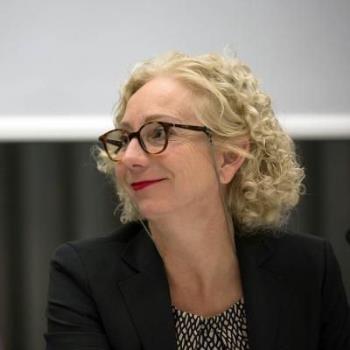

Nur Sulyna Abdullah is currently the Special Advisor to the Secretary General of the International Telecommunication Union (ITU). She is also the Interim Executive Director of the Broadband Commission for Sustainable Development. Sulyna joined the ITU in April 2019 as the Chief of the Digital Knowledge Hub Department in the Telecommunication Development Bureau (BDT).
Previously, she was at the Malaysian Communications and Multimedia Commission for two decades during which she was Chief Officer of Corporate Strategy and Chief Transformation Officer. She then served as the Director of Public Policy for Southeast Asia at Netflix, before joining ITU. Sulyna is an Advocate and Solicitor of the Malaysian Bar.
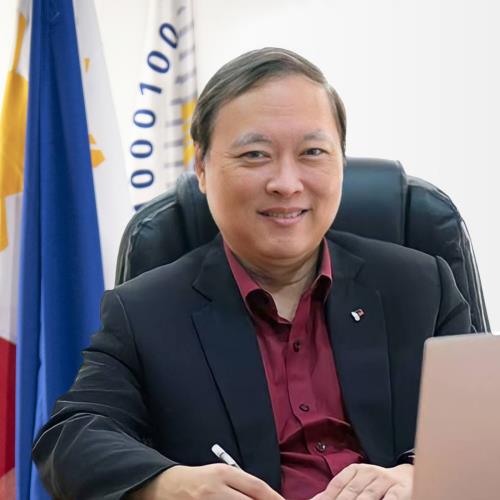
Secretary Ivan John E. Uy’s extensive career in public service spans over 30 years in the field of information and communications technology. He specializes in ICT and its impact on law, justice, and governmental institutions. He has years of experience leading agencies and organizations from the public and private sector, with a track record of achievements and milestones for the institutions that he directed.
Secretary Uy graduated Bachelor of Science in Management Major in Legal Management from the Ateneo de Manila University, and is a graduate of law at the University of the Philippines. He was also a Hubert Humphrey Fellow under the Fulbright Program at the University of Minnesota and completed the Special Program on Chinese Law for Foreign Lawyers at the Tsinghua University.
As Chairman of the Commission on Information and Communications Technology for the Philippine government, Secretary Uy oversaw the formulation of the Philippine Digital Strategy from 2011 to 2016. The Commission Covered national concerns on telecommunications, broadcasting, human resource development, eGovernance, postal reform, cybersecurity, data privacy, cyber services, business development, Business Process Outsourcing, and telemedicine among others. During his incumbency, the Philippines overtook India as the leading call center destination of the world.
As Chief Information/Technology Officer of the Judicial Branch, he developed and managed all computerization projects of the entire Judiciary. He was the key person for ICT-enabled processes on the Judicial Reform where he introduced and implemented ICT-enabled platforms to significantly reduce corruption and inefficiency in the entire Judiciary.
Appointed Secretary to the Department of Information and Communications Technology in June 2022, he has since been working towards improving Philippine e-governance, strengthening the nation’s cybersecurity initiatives to protect our citizens from cyber threats, and continuing the previous administration’s digital infrastructure buildup to provide widespread connectivity across the country.
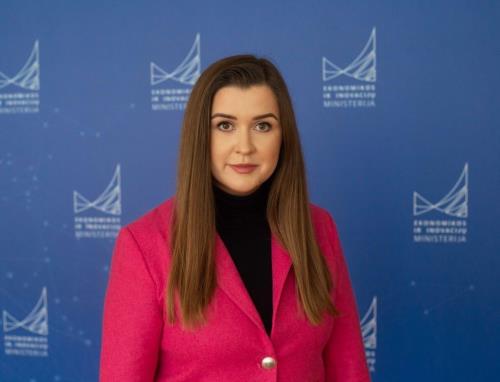
Eglė Markevičiūtė is Vice-Minister of the Economy and Innovation of the Republic of Lithuania responsible for innovation and the digital policy. E. Markevičiūtė holds BA and MA degrees in Political Science at the Institute of International Relations and Political Science of Vilnius University. Previously she worked as a lobbyist and policy and public relations consultant.
Eglė Markevičiūtė is Vice-Minister of the Economy and Innovation of the Republic of Lithuania responsible for innovation and the digital policy. E. Markevičiūtė holds BA and MA degrees in Political Science at the Institute of International Relations and Political Science of Vilnius University. Previously she worked as a lobbyist and policy and public relations consultant.
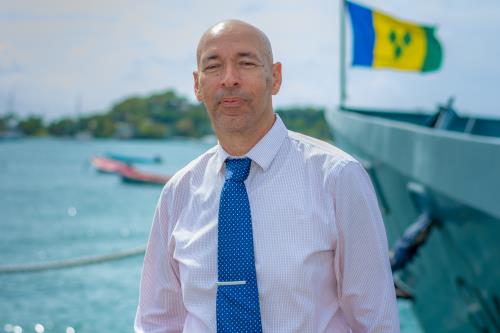
Mr. Knights has spent the last two decades working in the public sector in St. Vincent and the Grenadines and specifically in the area of telecommunications development, regulation and policy. Prior to joining the National Telecommunications Regulatory Commission (NTRC) as its director in 2002 he was the Telecommunications Officer in the Ministry of Communications and Works and was deeply involved in the telecommunications liberalization process within the Organization of Eastern Caribbean States (OECS).
His expertise covers a wide area including management, emergency communications, numbering, universal service and access, policy development, digital transformation and the Internet. Mr. Knights believes in practical solutions to problems and tries to have his work benefit the citizens he serves here at home and the wider Caribbean region.
He holds a bachelor’s degree in Electrical Engineering, a Master’s Degree in Telecommunications and Networking and an MBA in International Business.
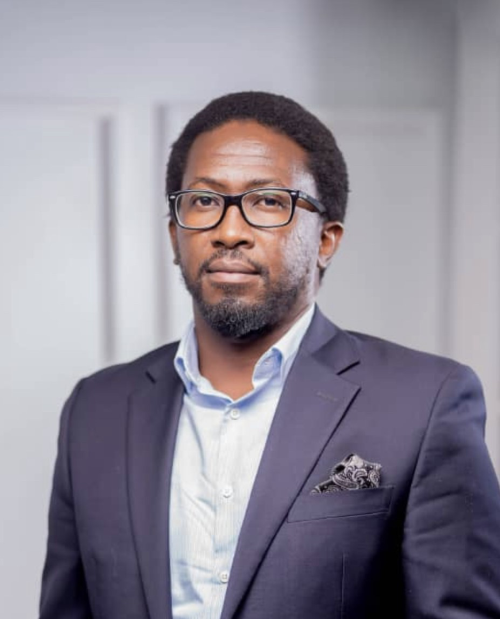
A competition economist currently working as the Director of Economic Regulation for Malawi Communications Regulatory Authority (MACRA) with over 10 years experience focusing on promotion of competition and economic regulation of the ICT/digital services sector. Key focus on effective application of tariff regulation, interconnection, infrastructure sharing and spectrum pricing.

She has more than 15 years of experience in the public service and has worked extensively on international issues. She holds degrees in law and economics.
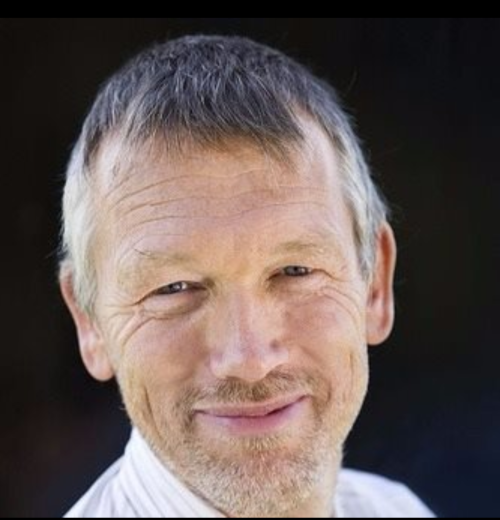
Josef Noll is a Professor at the University of Oslo (UiO) and Secretary-General at the Basic Internet Foundation. His focus at UiO, where he leads "Digital Health" at the Centre for Global Health, is on Societal Security, including the impact of digitisation. Coming from the Mobile Operator Telenor, where his group was responsible for the 3G (UMTS) development, he has identified the digital divide as one of the big societal challenges. Through the Foundation he promotes "Internet Lite for All", the free access to information for everyone. The Foundation has established information spots in 8 countries, with 5 of them being in Africa. Health facility connectivity is seen as key for community involvement and digital health promotion (DHP), involving the local community with adequate digital health information and thus contributing to societal empowerment. Prof. Noll is project leader of the "Non-discriminating Access for Digital Inclusion" (DigI.BasicInternet.no) and the "Security for IoT for Smart Grids" project, as well as involved in several Digital Health projects. Besides his academic background, he has worked in SIEMENS (DE), European Space Agency (NL) and Telenor (NO)

Alève Mine is at the origin of the study of recursive risk and the founder of the OneGoal Initiative for Governance, which just launched its Qaucus programme, and of the Zurich AR/VR Meetup, which was identified as a “key Swiss player” on the Gottlieb Duttweiler Institut’s extended reality map. Alève holds a M.Sc. from the EPFL (Ecole Polytechnique Fédérale de Lausanne) in microengineering (robots, nanotech, chips, sensors, materials, lasers, signal processing, computing, production lines, etc.) as well as a finance diploma from the St. Galler Management Institut (valuation, analysis), worked worldwide in the arts and is an ITU-T laureate. Alève is the author of “Storytelling Automation Principles”

As the CEO and Founder of @Startup Thoko and African Tech Unicorns. Her experience as a serial entrepreneur and consultant from Cape Town, South Africa, where youth unemployment is rising beyond the 64% mark - especially where women and girls have been at the core of the divergent change towards digital Miya has focussed much of her work on the intersection of technology and innovation within a gender and development lens for women and youth. In this sessions she aims to draw on her myriad of experiences working across Africa and the World from the Silicon Cape to the Silicon Valley and her experience enabling and empowering women and girls into areas of change and development.. The work she has completed looks specifically into bridging the technology digital divide in the global divide, specifically in Sub-Saharan Africa and the Southern African Development Community countries. Thoko has an interest in the development of women and girls through technology, access, education and opportunity. It is through these sessions that she aims to make a contribution to the World Summit On the Information Society in 2023.
-
 C1. The role of governments and all stakeholders in the promotion of ICTs for development
C1. The role of governments and all stakeholders in the promotion of ICTs for development
-
 C2. Information and communication infrastructure
C2. Information and communication infrastructure
-
 C3. Access to information and knowledge
C3. Access to information and knowledge
-
 C4. Capacity building
C4. Capacity building
-
 C5. Building confidence and security in use of ICTs
C5. Building confidence and security in use of ICTs
-
 C6. Enabling environment
C6. Enabling environment
-
 C7. ICT applications: benefits in all aspects of life — E-government
C7. ICT applications: benefits in all aspects of life — E-government
-
 C7. ICT applications: benefits in all aspects of life — E-business
C7. ICT applications: benefits in all aspects of life — E-business
-
 C7. ICT applications: benefits in all aspects of life — E-learning
C7. ICT applications: benefits in all aspects of life — E-learning
-
 C7. ICT applications: benefits in all aspects of life — E-health
C7. ICT applications: benefits in all aspects of life — E-health
-
 C7. ICT applications: benefits in all aspects of life — E-employment
C7. ICT applications: benefits in all aspects of life — E-employment
-
 C7. ICT applications: benefits in all aspects of life — E-environment
C7. ICT applications: benefits in all aspects of life — E-environment
-
 C7. ICT applications: benefits in all aspects of life — E-agriculture
C7. ICT applications: benefits in all aspects of life — E-agriculture
-
 C7. ICT applications: benefits in all aspects of life — E-science
C7. ICT applications: benefits in all aspects of life — E-science
-
 C8. Cultural diversity and identity, linguistic diversity and local content
C8. Cultural diversity and identity, linguistic diversity and local content
-
 C9. Media
C9. Media
-
 C10. Ethical dimensions of the Information Society
C10. Ethical dimensions of the Information Society
-
 C11. International and regional cooperation
C11. International and regional cooperation
-
 Goal 1: End poverty in all its forms everywhere
Goal 1: End poverty in all its forms everywhere
-
 Goal 2: End hunger, achieve food security and improved nutrition and promote sustainable agriculture
Goal 2: End hunger, achieve food security and improved nutrition and promote sustainable agriculture
-
 Goal 3: Ensure healthy lives and promote well-being for all
Goal 3: Ensure healthy lives and promote well-being for all
-
 Goal 4: Ensure inclusive and equitable quality education and promote lifelong learning opportunities for all
Goal 4: Ensure inclusive and equitable quality education and promote lifelong learning opportunities for all
-
 Goal 5: Achieve gender equality and empower all women and girls
Goal 5: Achieve gender equality and empower all women and girls
-
 Goal 6: Ensure access to water and sanitation for all
Goal 6: Ensure access to water and sanitation for all
-
 Goal 7: Ensure access to affordable, reliable, sustainable and modern energy for all
Goal 7: Ensure access to affordable, reliable, sustainable and modern energy for all
-
 Goal 8: Promote inclusive and sustainable economic growth, employment and decent work for all
Goal 8: Promote inclusive and sustainable economic growth, employment and decent work for all
-
 Goal 9: Build resilient infrastructure, promote sustainable industrialization and foster innovation
Goal 9: Build resilient infrastructure, promote sustainable industrialization and foster innovation
-
 Goal 10: Reduce inequality within and among countries
Goal 10: Reduce inequality within and among countries
-
 Goal 11: Make cities inclusive, safe, resilient and sustainable
Goal 11: Make cities inclusive, safe, resilient and sustainable
-
 Goal 12: Ensure sustainable consumption and production patterns
Goal 12: Ensure sustainable consumption and production patterns
-
 Goal 13: Take urgent action to combat climate change and its impacts
Goal 13: Take urgent action to combat climate change and its impacts
-
 Goal 14: Conserve and sustainably use the oceans, seas and marine resources
Goal 14: Conserve and sustainably use the oceans, seas and marine resources
-
 Goal 15: Sustainably manage forests, combat desertification, halt and reverse land degradation, halt biodiversity loss
Goal 15: Sustainably manage forests, combat desertification, halt and reverse land degradation, halt biodiversity loss
-
 Goal 16: Promote just, peaceful and inclusive societies
Goal 16: Promote just, peaceful and inclusive societies
-
 Goal 17: Revitalize the global partnership for sustainable development
Goal 17: Revitalize the global partnership for sustainable development